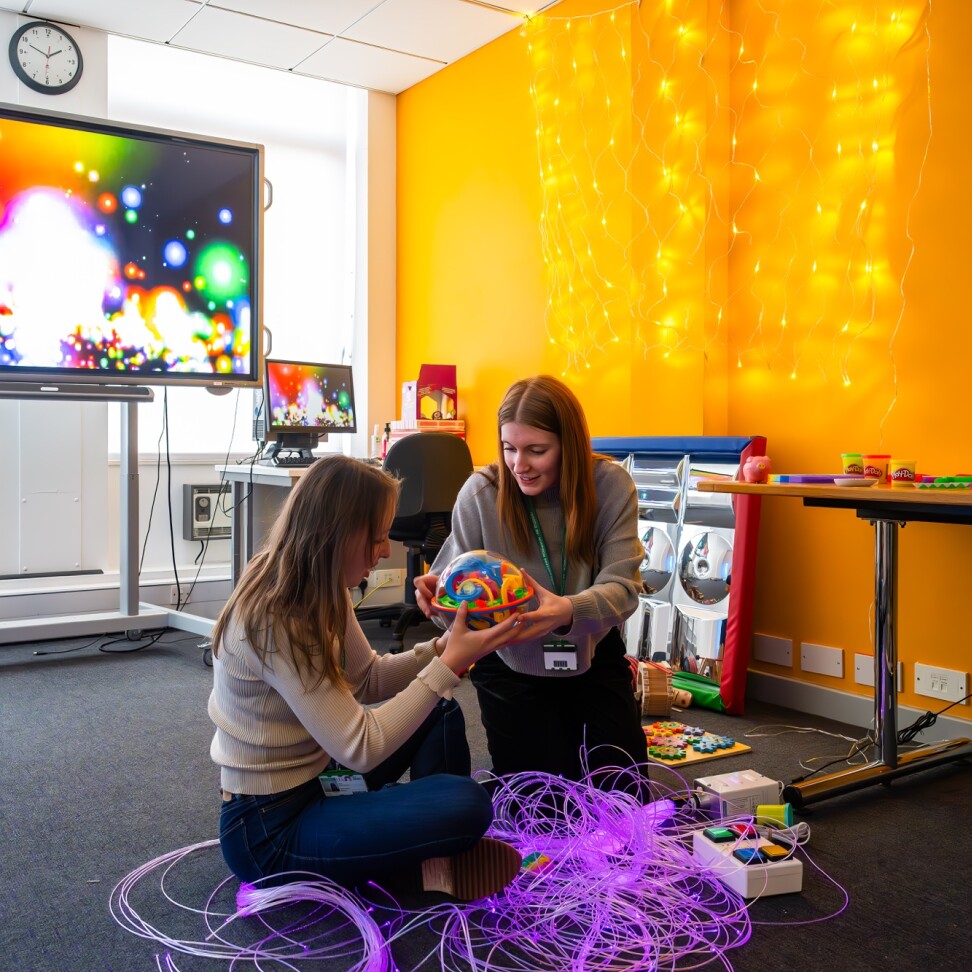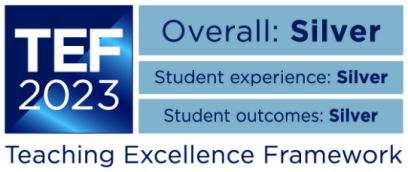BA (Hons) Additional Needs and Disabilities (Children and Young People)

Unlock your potential to support children and young people with additional needs and disabilities, and their families, with our BA (Hons) Additional Needs and Disabilities (Children and Young People) degree. Gain insight into diagnosis, behaviour, care, transitions, independence, assistive technology, health, inclusion, rights, creative practices, and innovation.
This programme is subject to validation / revalidation by UEA, ready to accept new entrants from September 2026. Therefore, for next year there may be some changes to this advertised course content following this process.
- Level
- 6
- Entry Point
- Sep 2026
- Duration
- Full Time, 3 years
- Venue
- Norfolk House campus
- UCAS Course Code
- X360
Reasons to study
this course
If you have an interest in developing skills and understanding in working with and supporting children and young people with additional needs and disabilities, and their families, this could be the course for you.
You will gain insight into many of the disciplines associated with supporting children and young people with additional needs and disabilities including diagnosis and developing, historical, cultural, social, and political attitudes and values, exploring behaviour, care and education, transitions and how to promote independence, assistive technology, health, inclusion, rights, creative practice, and innovation in the field.
The SEND sector holds great potential for growth and improvement, and we are excited to offer you the opportunity to enhance your skills and play a vital role in shaping its future.
By "additional needs," we refer not only to the traditional understanding of special educational needs but to a broad spectrum of requirements. These include, but are not limited to, autism, ADHD, mental health conditions, attachment disorders, experiences of trauma, the needs of refugees and travellers, children with English as an additional language, and many others.
We are committed to career development and management. This course is designed with a strong focus on employability, equipping you with the knowledge and understanding essential for a wide range of careers in this field. Specific modules are dedicated to cultivating professional practice and leadership skills, ensuring you are well-prepared for the demands of the industry. To enhance your learning experience, the programme encourages you to explore your individual interests through tailored assessments and subject-specific research. In addition, the course provides a strong base for you to continue into further study at master’s level.
Students will have access to industry professionals, guest speakers and trips to help develop their knowledge and understanding further.
Our approach at City College Norwich Higher Education is unique. We have a strong belief in relationship-based practice, supporting students from their first contact with us all the way through to graduation. Our students consistently tell us that their lecturers are supportive and responsive to their needs, and that we go above and beyond to help them to succeed. (91.3% of students were positive that they felt supported by teaching staff, OfS National Student Survey 2024)
Our small group model means that we have opportunity for group discussions, practical activities and tutorials to support learning. This course attracts students from a wide range of ages and backgrounds, creating valuable opportunities to share diverse experiences and perspectives, which further enrich the learning environment. Our lecturers are passionate about their course areas and look forward to welcoming new students to the course.
Claire Carkin - Course Leader BA (Hons) Additional Needs and Disabilities (Children and Young People)
Hello, my name is Claire Carkin and I am the course leader for BA (Hons) Additional Needs and Disabilities (Children and Young People). I have 21 years experience working with children and young people with varying additional needs, and have been teaching at City College Norwich since September 2018, course leading for the degree since its beginning in September 2021. I am passionate about supporting additional needs and the need for the development of a more inclusive society that meets the needs of everyone, and I love sharing this passion and debate with the students that I teach. If you would like to learn more about this degree then please get in touch. I can’t wait to hear from you so that I can tell you all about this amazing degree!
Contact course leaderWhere will this
course take you?
Students embarking on the BA (Hons) Additional Needs and Disabilities (Children and Young People) degree will complete at Level 6 after three years of study. Possible post-course academic destinations could include a postgraduate certificate in education (PGCE) or teacher training equivalent, PGCert Special Educational Needs Coordinator, Masters/MEd in Inclusion/Special Education Needs, Additional Needs and Disability or similar Level 7 programmes. Career destinations could include special education teaching, social work, children’s services roles, educational or developmental psychology, occupational therapy, counselling, applied behaviour analyst, speech-language therapy, refugee support, or mediation – there is no limit to where the degree can take you!
Student stories
Course structure
This course is studied full time over three years. The programme is delivered over two days a week - 30 teaching weeks per year.
Level 4 modules
Higher Learning Skills Compulsory
This module enables you to identify and develop the Higher Education (HE) study skills needed for successful learning at HE level, while also building transferable skills relevant to academic study and the workplace. You will reflect on your academic development to support your progress and success. The module links to Level 5 Research Skills and is integrated across all modules.
Assessment:
- Group presentation (30% of module weighting)
- Reflective journal (70% of module weighting)
Attitudes and Values Compulsory
The module explores how attitudes and values around additional needs and disabilities differ, align, or have evolved across history, culture, and society. You will use historical, cultural, and societal perspectives to interpret children’s and young people's experiences, deepening your understanding and knowledge of supporting additional needs and disabilities. A significant component of the module involves investigating stereotypes and stigma. Links to Level 6 Current Issues and Events.
Assessment:
- Poster Presentation (100% of module weighting)
Inclusive Development Compulsory
This module provides you with the opportunity to develop knowledge and understanding of human development. You will explore elements such as diagnosis, factors affecting development, and the importance of early intervention. The module links to Level 4 Understanding Behaviour, Level 5 Transitions and Promoting Independence, Health, Identity, and Wellbeing.
Assessment:
- Report (100% of module weighting)
Understanding Behaviour Core
This module focuses on behaviour of concern and strategies for recognising, understanding, and managing it. You will explore current law, legislation, and issues surrounding inclusive practice, with behaviour discussed as a contemporary issue. Ethical practice will also be considered, along with the causation and impact of additional needs on the child/young person and their family. Links to Level 5 Transitions and Promoting Independence.
Assessment:
- Essay (70% of module weighting)
- Poster (30% of module weighting)
The Autism Spectrum Compulsory
This module aims to give you a clear understanding of autism, why it is considered a spectrum and how it affects individuals and families. It considers different approaches to understanding autism, key features of explanations of autism, diagnosis, intervention, education, and an understanding of autism in a global context. Links to Level 4 Understanding Behaviour, Level 5 Transitions and Promoting Independence, Safeguarding, Health, Identity and Wellbeing, Level 6 Creativity in Practice.
Assessment:
-
Essay (50% of module weighting)
-
Presentation (50% of module weighting)
Focused Care and Education Compulsory
This module focuses on the concept of person focused care and education for children and young people ages 0-25 and will allow an exploration of theory and practice. The main aim is to increase empathy, insight and understanding of children and young people with additional needs and the impact of disabilities and mental health. You will explore the concept of inclusion and how people with a wide range of needs can be supported. Links to Level 5 Transitions and Promoting Independence, Health, Identity and Wellbeing.
Assessment:
-
Exhibition (50% of module weighting)
-
Essay (50% of module weighting)
Level 5 modules
Safeguarding and Multi-Agency Working Compulsory
This module will examine the role of the practitioner in relation to other professional roles and responsibilities. The complexities inherent in the notions of safeguarding children, young people, and vulnerable adults will be explored. You will consider the interaction between prevailing social norms, as reflected in current policy frameworks, and individuals' ethical, moral, and cultural perspectives. Links to Level 6 Legal Framework, Inclusion and Rights.
Assessment:
-
Open Book Exam (80% of module weighting)
-
Professional Discussion (20% of module weighting)
Health, Identity and Wellbeing Compulsory
This module fosters an awareness of differing perspectives, models and approaches to health, identity, and wellbeing to enrich the experiences, and future outcomes of children and young people with additional needs. There will be a focus on promoting identity to support emotional and social development. Links to Level 4 Diagnosis and Development, Level 5 Transitions and Promoting Independence, Level 6 Creativity in Practice.
Assessment:
-
Essay (50% of module weighting)
-
Poster Presentation (50% of module weighting)
Assistive Technology Compulsory
This module considers the impact of assistive technology and a range of communication methods in supporting the lives of children and young people living with additional needs and disabilities. You will explore technology for education and life. Links to Level 5 Transitions and Promoting Independence and Level 6 Creativity in Practice.
Assessment:
-
Presentation (50% of module weighting)
-
Essay (50% of module weighting)
Research Skills Compulsory
In this module, you will evaluate research methods and methodology appropriate to researching with the context of additional needs and disabilities. You will analyse the ethical issues which arise in practitioner research and explore the value of ongoing research in practice. Links to Level 4 Higher Learning Skills and Level 6 Dissertation.
Assessment:
-
Research Report (100% of module weighting)
Transitions and Promoting Independence Core
This module aims to give you a clear understanding of the importance of good transitions for children/young people with additional needs. There will also be a focus on the need to promote independence and how this can be achieved. Key transition periods will be considered. You will also explore the purpose of education, considering the debate between academia and the teaching of practical skills. Links to Level 4 Diagnosis and Development, Focused Care and Education and Understanding Behaviour.
Assessment:
-
Activity (50% of module weighting)
-
Essay (50% of module weighting)
Professional Development Compulsory
This module explores various aspects of professional working within the field of supporting additional needs. There will be consideration of the structure of the sector, professional issues, and developments within the sector. You will explore your own transferable employability skills and consider career development. Links to Level 6 Effective Leadership and Management.
Assessment:
-
Digital Portfolio
Level 6 modules
Legal Framework, Inclusion and Rights Compulsory
This module offers you the opportunity to develop a deeper understanding of issues related to legislation, policy, provision, and rights when working within the field of supporting additional needs. You will have the opportunity to explore the underpinning ethos of inclusiveness and how policy is translated into practice. Links to Level 5 Safeguarding and Multi Agency Working.
Assessment:
-
Exam (80% of module weighting)
-
Professional Discussion (20% of module weighting)
Current, Issues and Events Compulsory
This module provides the opportunity to study the current issues and events which are new and relevant to professionals working with children and young people living with additional needs and disabilities. These may be local, national, or global and will be examined from philosophical, socio-political, health and comparative viewpoints as appropriate. Students will consider ideas such as context, representation, fake news, social media, and challenging perspectives. Links to Level 4 Attitudes and Values.
Assessment:
-
Seminar (60% of module weighting)
-
Seminar paper (40% of module weighting)
Dissertation Core
The dissertation represents the culmination of a degree course and the achievement of honours status within it. Its aim is to provide the opportunity to demonstrate analytical ability and problem-solve within a systematically researched project that may be in the form of a practical or theoretic exercise. You will complete your own independent research project around a chosen theme in consideration of children and young people with additional needs and disabilities. Links to Level 5 Research Skills.
Assessment:
-
Dissertation (100% of module weighting)
Creative Practice Compulsory
This module provides an exploration and evaluation of the place that creative and innovative practice has in supporting children and young people with additional needs and disabilities in education, wellbeing and living. The module will explore creative and alternative therapies. You will examine the value of these and consider complexities and challenges. Links to Level 5 Health, Identity and Wellbeing.
Assessment:
-
Workshop (50% of module weighting)
-
Workbook (50% of module weighting)
Effective Leadership and Management Compulsory
This module is concerned with enhancing your ability to understand and evaluate processes and techniques for leading and managing people in work settings. This unit aims to develop a high level of personal communication skills. You will discuss leadership styles, and their appropriateness and effectiveness. There will be a focus on critical thinking, problem solving, risk management and decision making. Links to Level 5 Professional Development.
Assessment:
-
Essay (100% of module weighting)
Course details
Assessment methods
This 3 year programme is delivered through a mixture of workshops, lectures, seminars, practical sessions, tutorials and self-directed study. You will be assessed through essays, presentations, reports, posters, exhibitions, exams, seminars, portfolios, professional discussions, and a dissertation.
Awarded by
This course is awarded by the University of East Anglia and regulated by The Office for Students


Entry requirements
UCAS points
Our typical offer is 80 UCAS tariff points from A Levels or equivalent
GCSEs
GCSE English at grade 4 or above (C or above)
Scottish Highers
UCAS points from Scottish Highers or Advanced Levels are accepted
BTEC
UCAS tariff points from BTEC or City and Guilds Diplomas are accepted
T Levels
T Levels are accepted. We will accept applications from students who have passed, or are predicted to gain a pass grade in the following specific course programmes:
- T Level: Education and Early Years (Assisting Teaching) Level 3
- T Level: Education and Early Years (Early Years Educator) Level 3
Open University
Open University credits in lieu of A Levels
Access to HE Diplomas
Access to Higher Education Diplomas are accepted with a scientific element desired
Contextualised Offer
You may also be eligible for a contextualised offer for this programme, please see our Contextualised Offer page for further details and to check your eligibility
Applications from students whose first language is not English are welcome. For International students we require evidence of proficiency in - English (including writing, speaking, listening and reading); the required minimum is IELTS (SELT) 6.0 overall (minimum 5.5 in all components). Please contact the Advice Shop for advice and guidance.
Course fees
£9,535 per year for UK students.
£15,052 per year for international students (students from outside of the UK).
We were awarded a TEF Silver rating overall in 2023, achieving this for both student experience and student outcomes.

Search courses
Search CCN HE





